Bond Blog: The World Is Not Enough – A James Bond Retrospective
Writing Bond Blog has given me some genuine revelations. Watching the films in sequence, you can see the developments and the repetitions, the lack of originality and the occasional innovation. I assumed that my own judgement was already fairly fixed as I’d seen every film multiple times. I wasn’t ready to dislike Live and Let Die as much as I ended up doing, or totally reassessing the Timothy Dalton films. Likewise, The World is Not Enough was a film I’d written off as a boring dip in quality, but I’m happy to say I was wrong.
I think the main reason I hated the film on first seeing it was because of the joke with the traffic wardens during the Thames boat chase. This involved the cast of a TV documentary that was briefly popular and the producers lobbed it into the film for a cheap laugh which no one else in the world would get and now everyone has forgotten. But it’s a relatively rare off-note and there’s much more to enjoy. From the first moment we glimpse Brosnan striding through Bilbao, his eyes flicking from side to side as he scopes out any danger, we are in the presence of an actor fully at home in the role. He looks great and he continues to inject his Bond with a certain tenderness, an added poignancy, which the job only allows him occasionally to express.
The story is a refreshingly confusing one about oil pipelines, terrorists and a millionaire’s daughter who needs protecting following said millionaire’s murder. Obviously, no one clocks that her name being Elektra (Sophie Marceau) there might be problems along the line. Bond falls for her before he’s even met her, feeling guilt for her father’s murder and empathy for her ordeal at the hands of a terrorist Renard (Robert Carlyle) who is once more active. The set pieces are relatively subdued – a bot chase, a ski chase, and a few gun fights – and it’s refreshing not to end things with a low-key punch up. Although the writers Purvis and Wade have fun reintroducing a lot of espionage elements to the story, there is still the tug of franchise branding that sees the film occasionally slip into the corny joke or the baffling twist. When Bond tells Elektra that he takes great pleasure in beauty as a way of surviving the horrors of his work, it feels like we’re actually getting some insight. But later he’ll also give Christmas (Denise Richards) a throwaway line about his relationship with her which smacks more of Roger Moore. This tension throughout the film between the old and new, the Moore and what will become the Craig Bond makes it a fascinating watch. The introduction of John Cleese sees the final belated farewell to Desmond Llewelyn in the role of Q. But Cleese represents more continuity rather than a proper break with the past. There’s something more precious than poignant about it all.
The main innovation is giving Bond a femme fatale. Michael Apted as a director had been chosen explicitly because of his record-making movies with strong female leads and Dana Stevens did a rewrite to punch up the women’s lines. There’s an element of genuine surprise and uncertainty. Elektra is after all presented as a rape victim and by the end of the film, she is unarmed and is shot by Bond. The distrust and misogyny of the original Casino Royale novel is here in spades. The other side of the coin is present also with Denise Richards’ nuclear physicist Christmas Jones. Dressed as Lara Croft, Jones is more obviously a Bond girl with very little to do except look great. She is actually fundamental to the plot in many ways, disarming bombs etc, but Richards fails to convey any presence as anything other than the butt of some excellent Christmas jokes.
Robert Carlyle also does an excellent job with his damaged terrorist. Renard is intelligent and mean-looking. His brain injury which means he can’t feel pain adds a certain pathos to his character. His affection for Elektra and his growing suspicion that he is being used by her means that we actually feel something for a villain. Judi Dench is called in to actually participate and her role is growing to be more than simply a classy means of exposition dump. Robbie Coltrane reprises his Russian gangster from GoldenEye and the franchise has the air of a well-oiled machine ticking along at full speed. The year 1999 would end up marking a turning point in many different ways and the future looks uncertain. It is undoubtedly the case that Brosnan has reinvented Bond within very familiar lines and has found a new audience even as he retains the loyal fan base. His final Bond is already on the horizon, but with the first three the producers can be confident that they have carved out a new place in the cultural imagination for 007, but more change is yet to come.

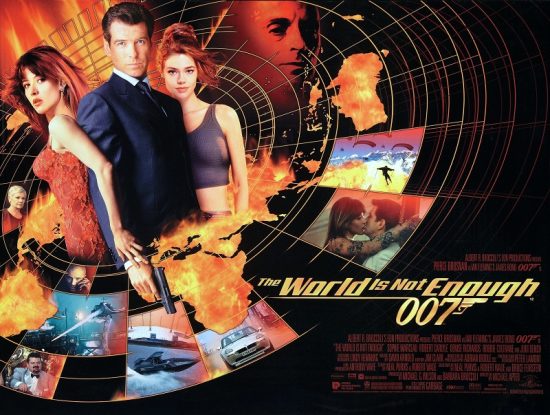
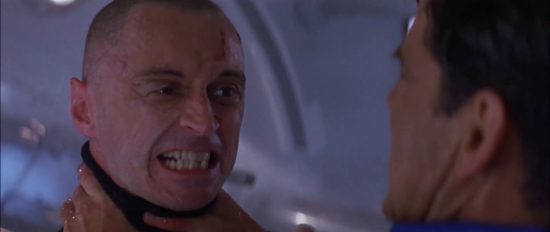
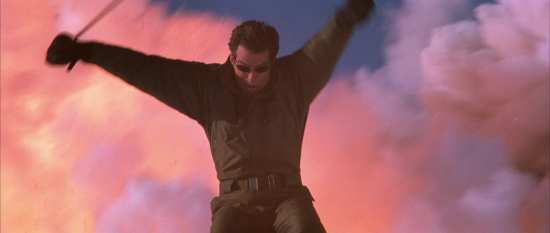
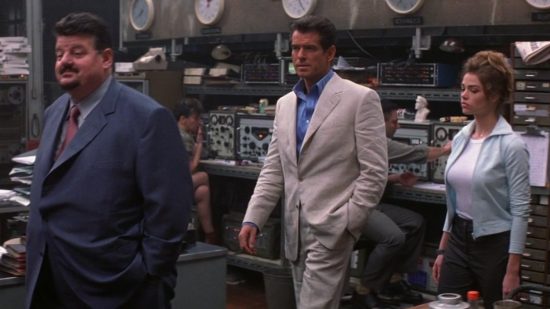
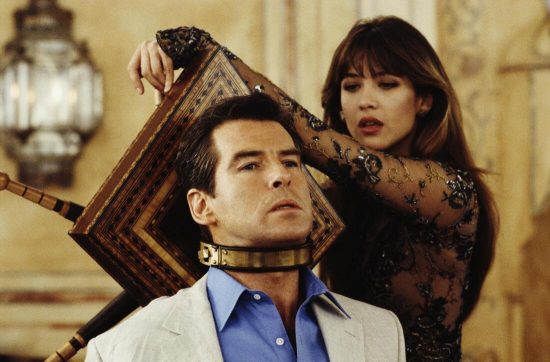









If you’re an espionage aficionado, an Ian Fleming follower or a 007 devotee then you must know who wrote the “Trout Memo” and what it was all about. If not, and you want to be an espionage illuminatus, you had best Google “Trout Memo”. Of course, most espionage aficionados and real spies have read Bill Fairclough’s epic spy thriller #BeyondEnkription in #TheBurlingtonFiles series. It was written by a real secret agent for espionage cognoscenti and actual spies and even includes many examples of lesser known spy practices that Ian Fleming would have loved.
The protagonist of The Burlington Files, Edward Burlington aka Bill Fairclough, lived just as “fast and furious” a life as James Bond or even the Gray Man did but with one subtle difference: it actually happened. Indeed, all his exploits in London, Nassau and Port au Prince in the first stand-alone novel in the series are based on hard facts some of which you can even check out with press cuttings.
By the way, Fairclough’s MI6 handler Mac aka Col Alan Pemberton CVO MBE knew Ian Fleming, Kim Philby and KGB Col Oleg Gordievsky. No surprise then that John le Carré refused to write a series of collaborative spy novels with Fairclough given Philby ended John le Carré’s MI6 career. Little wonder also that in hindsight Ian Fleming was thankful that he didn’t work directly for MI6.